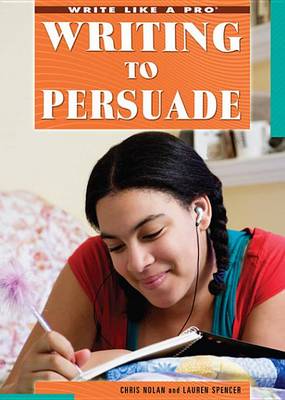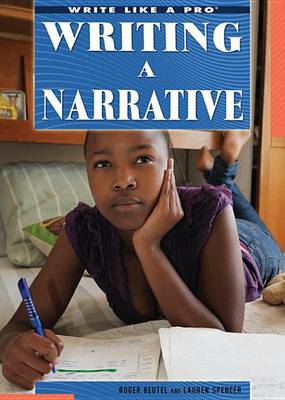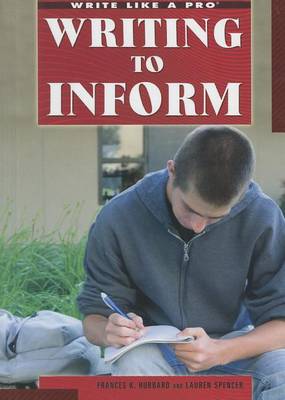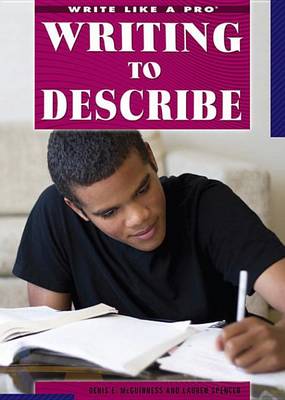Write Like a Pro
6 total works
This book instructs readers on how to write persuasive literature such as essays, opinions, and general viewpoints. Each step of the writing process is covered, such as research and organization, composing the first draft, revising, editing, proofreading, and presenting.
Everyone has a story to tell, whether factual or fictitious or somewhere in between. Releasing these stories from our imagination and memories can be achieved through narrative writing. As with any creative writing, one's ability to show an event unfold through the use of interesting details is crucial. This narrative art is achieved with the use of pacing, characterization, dialogue, and action. This book examines all the elements needed to get the creative process moving, including choosing an idea, firming up the plot, and strengthening the narrative voice. Various literary techniques are explored that can enhance one's writing when combined with basic story elements. In addition, prewriting techniques, brainstorming, detail selection, ordering of events, style, dialogue, revision strategies, and proofreading and editing are all emphasized, explained, and explored. Includes a chapter on digital media and the new venues and tools available to writers, including Wikipedia, blogs, vlogs, community forums, and collaborative digital writing projects.
This useful guide supports young people in experimenting with different forms of personal writing. Young authors will learn to use their memories and experiences as material for creative nonfiction. The text leads readers through the five steps of the writing process with straightforward explanations, examples, and engaging photographs. Forms explored include personal narratives, friendly letters, journal entries, poems, e-mails, and blogs.
Being able to share information effectively through the written word is an essential skill in modern society. This guide provides a step-by-step how-to on informative writing, from the research process to the final edits and everything in between. It delves beyond the writing basics and shows how informative writing can be applied most effectively in the digital age of communication.
In this skills-building book, students master descriptive writing using fun-filled techniques. Packed with stimulating mini-lessons and hands-on writing activities, the volume displays step-by-step approaches to bring out the best in writing and creating stories that are rich in sensory detail. Examples of a brainstorming cluster, synonym chart, sensory chart, and figurative language chart help students construct their vividly descriptive stories. Each chapter includes "Essential Steps" and "A Second Look" boxes to help students get organized and review their writing pieces.




